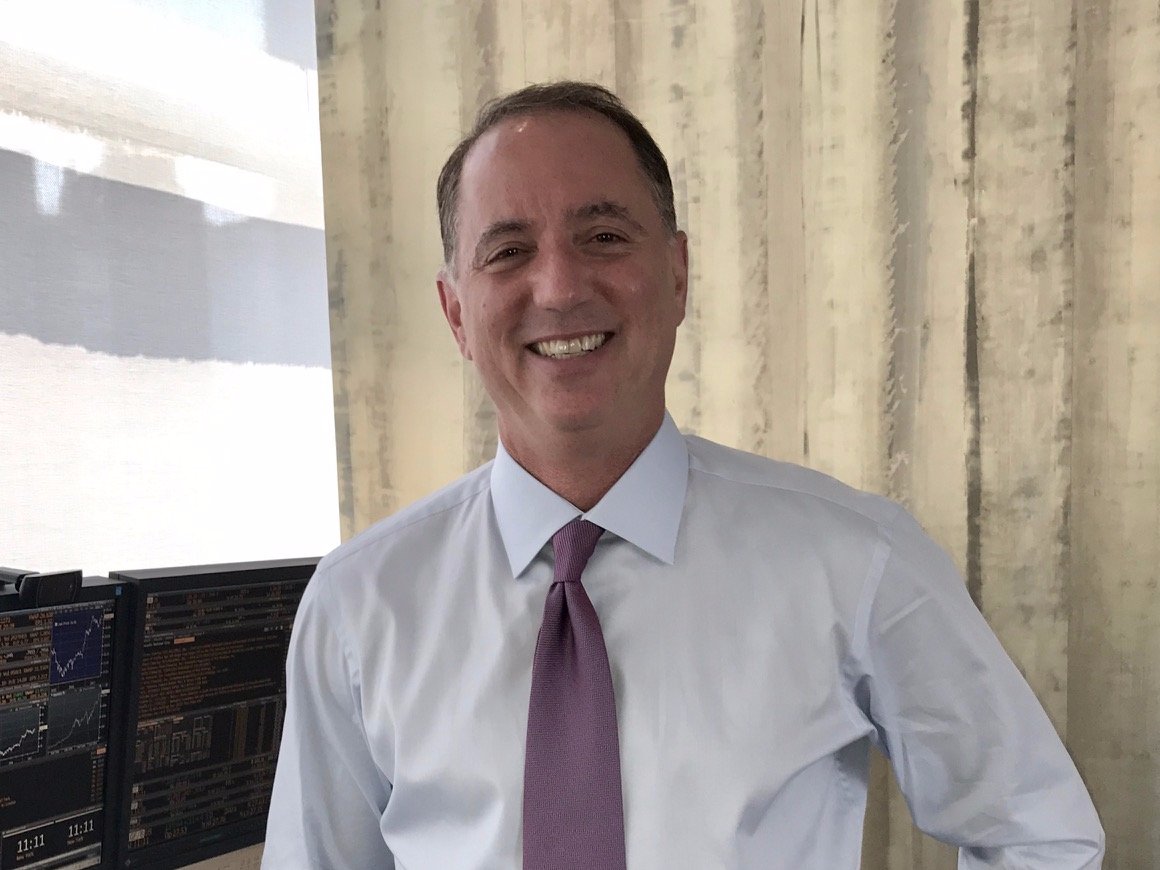 Jefferies CEO Rich Handler.Jefferies
Jefferies CEO Rich Handler.Jefferies- Jefferies on Tuesday reported record earnings, driven by a strong year from its investment bank.
- It’s part of a resurgence for the firm, which jumped two spots to ninth in US investment banking revenue.
- Investing in talent in recent years while others retreated has helped the bank snatch back market share, as has growing its business with private-equity firms.
- “If you do nothing too stupid or arrogant during the good times, you can take advantage during the bad times,” CEO Rich Handler told Business Insider.
Jefferies on Tuesday announced a monster fourth quarter that helped the bank generate the best annual revenue and profit figures in its 55-year history.
The firm, whose fiscal year ends a month earlier than the rest of Wall Street, reported annual revenue of $3.2 billion, up 32%; investment banking revenue of $1.76 billion, up 48%; and profits of $358 million, up from just $15 million last year — all three records.
The robust performance is part of a resurgence for Jefferies, which jumped two spots to ninth in US investment banking revenue — which includes fees for providing loans and advising on mergers and acquisitions, debt capital markets, and equity capital markets — according to Dealogic’s preliminary 2017 results released earlier this week.
It’s the only independent bank in the top 10; the rest of the list is made up of bulge-bracket conglomerates with massive global operations.
Jefferies CEO Rich Handler says the bank is catching up to some of its competitors and stealing market share in part because it has been investing in talent the past couple of years — especially in telecommunications, healthcare, energy, and industrials — while others were more gun-shy.
“Our recent strategy was to basically shrink our balance sheet and invest in quality bankers and quality people,” Handler, who has run Jefferies as CEO since 2001 and is the longest-tenured chief executive on Wall Street, told Business Insider.
He added: “Our industry expertise has improved and it’s pretty robust. Quite frankly, we’re in a good position, as many of our larger competitors have pulled back.”
Handler, who joined the firm in 1990 and has been a managing director since 1993, has a knack for staffing up when others are retreating. He also added to his roster after markets got choppy in 1998 and 2001 and again after the financial crisis in 2008, he said.
“The hardest thing to do is to invest when things are not going well,” Handler said. “It sounds kind of trite. If you do nothing too stupid or arrogant during the good times, you can take advantage during the bad times. We have done that fairly well over the past three decades.”
Getting in on the private-equity boom
The fruits of that investment were on full display in the firm’s fourth quarter, which saw record investment banking revenue of $529 million, a 27% increase from last year.
M&A advisory is up, but the independent bank has especially gained ground in underwriting debt and equity. For the full year, DCM revenue more than doubled to $649 million, while ECM revenue climbed 47% to $345 million.
Handler said that’s partly a function of Jefferies snatching up a hefty chunk of business from private-equity firms, an industry that is booming with record amounts of fundraising and dry powder.
Through the first three quarters of 2017, Jefferies pulled in just shy of $300 million in fees from financial sponsors, as buyout firms are often called in the industry, an 18% increase from the same point in 2016, according to data from Thomson Reuters.
“We’ve gained a lot of market share on the sponsor side because of the breadth of our sell-side assignments,” Handler said. “When you sell companies to the sponsor community, you tend to get the financing too.”
Given that private-equity firms typically rely on debt to finance acquisitions, establishing ties with these clients helps explain why Jefferies’ debt-underwriting business doubled this year.
It’s all adding up to a lucrative 2017 for Jefferies’ bankers. The firm is paying out $1.83 billion in compensation to its 3,450 employees around the world.
While payouts of course vary based on individual and department performance, that works out to an average of $530,000 an employee — the highest mark since the financial crisis in 2008.













